| Submission Deadline | |
| Notification of Acceptance | |
| Final Version Due | |
| Conference | July 19-21, 2024 |
Keynote Speakers
2024 ISBRA Conference – July 19-21, 2024 (Kunming, China)
Bin Ma
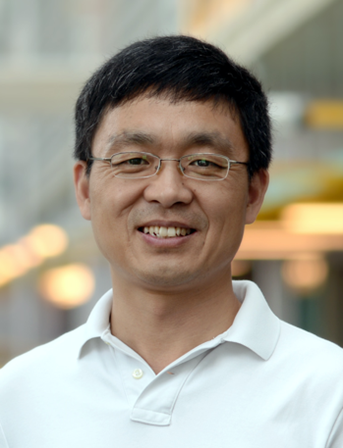
Professor
Cheriton School of Computer Science,
University of Waterloo
Biosketch
Bin Ma is a professor in the David R. Cheriton School of Computer Science at the University of Waterloo. His research focuses on de novo protein sequencing using mass spectrometry. He developed several software packages that are popularly used in proteomics, including the PEAKS software and the Novor software for peptide identification and de novo sequencing. He received B.Math and Ph.D. degrees from Peking University in 1994 and 1999, respectively. He joined Western University in 2000 and moved to University of Waterloo in 2008. He cofounded Bioinformatics Solutions Inc. in 2000 and Rapid Novor Inc. in 2015.
Keynote Title & Abstract
Title: Peptide and Protein De Novo Sequencing: Algorithms and Applications
Mass spectrometry has been used for de novo peptide sequencing for more than two decades.
A few generations of algorithms have been developed in the past. More recently, de novo sequencing has been used to sequence long proteins by assembling the de novo peptide sequences together.
The ability to de novo protein sequencing has drastically changed the antibody reagent industry. It also enabled Dr. Ma’s group to develop a mass spectrometry-based blood test (called EasyM) to monitor the minimal residual disease (MRD) status of multiple myeloma (a blood cancer). This non-invasive blood test replaces the traditional invasive bone marrow-based MRD test.
In this talk, we will review the de novo peptide and protein sequencing algorithms and discuss their applications in biotech industry and clinical settings.
Can Yang
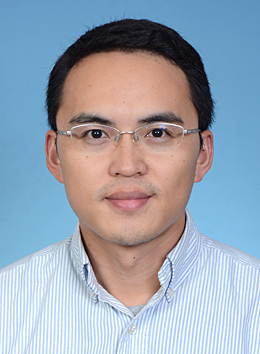
Associate Professor
Department of Mathematics,
The Hong Kong University of Science and Technology
Biosketch
Prof. Yang Can is currently Dr Tai-chin Lo Associate Professor of Science, Department of Mathematics, The Hong Kong University of Science and Technology. He serves as the associate director of Big Data Bio-Intelligence Lab (BDBI) at HKUST. He is currently an associate editor of Annals of Applied Statistics. His research focuses on data science with the development of novel statistical and computational methods for large-scale data analysis, including deep generative models, graph neural networks, and adversarial domain translation. His research papers have appeared in high-impact journals and prestigious machine learning conferences, such as Nature Machine Intelligence, Nature Computational Science, Nature Communications, Proceedings of the National Academy of Sciences (PNAS), Annals of Statistics, IEEE Transactions on Pattern Analysis and Machine Intelligence, The American Journal of Human Genetics, and the International Conference on Machine Learning. Prof. Yang has also established industrial collaborations supported by the Innovation and Technology Fund of the Hong Kong Government.
Keynote Title & Abstract
Title: AI for science: examples from spatial transcriptomics data analysis
Artificial intelligence (AI) is revolutionizing the way of doing science and making discovery. Here we present two examples from spatial transcriptomics (ST) data analysis to show the role of AI methods. On the one hand, current ST technologies cannot provide the spatial characterization at transcriptome-wide single-cell resolution, leading to limited usage in resolving detailed tissue structure and detecting cellular communications. To address this limitation, we develop SpatialScope, a unified approach to integrating scRNA-seq reference data and ST data by leveraging deep generative models. On the other hand, ST data analysis is often restricted to 2D space within a single tissue slice, limiting our capacity to understand biological processes that take place in 3D space. Here, we present STitch3D, a unified computational framework for 3D reconstruction of cellular structures from the tissue level to the whole organism level. While AI approaches greatly offer the computational efficiency, statistical principles and insights play an important role for the successful development of these methods. These are the joint work with my PhD students Xiaomeng Wan, Jiashun Xiao, Gefei Wang and Jia Zhao, as well as collaborators Angela Wu, Zhixiang Lin, Yan Yan and Yang Wang.
Hong-Bin Shen
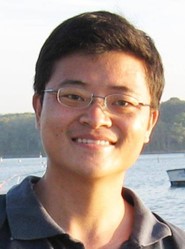
Distinguished Professor
Shanghai Jiao Tong University
Foreign member of Academy of Sciences of the Institute of Bologna
Italy
Biosketch
Hong-Bin Shen is a distinguished professor of Shanghai Jiao Tong University. He is a foreign member of Academy of Sciences of the Institute of Bologna, Italy. The long-term of his interest is pattern recognition and bioinformatics, to the development of advanced machine learning, artificial intelligence-based algorithms for understanding and annotating protein structures, functions, interactions between biological molecules; and study the image processing and pattern recognition techniques for understanding the bioimage big data.
Keynote Title & Abstract
Title: Multimodal protein data pattern analysis and bioinformatics computation
With the rapidly increasing protein and related molecular data, understanding the hidden knowledge behind the data, and revealing the hidden relationship between different sources of data is one of the promising interdisciplinary research directions of computer science and life sciences. Protein multimodal information of sequence, structure and other modal data complement each other. Developing efficient multimodal pattern embedding and data-driven pattern recognition algorithms is helpful for speeding up the understanding of the protein data.
Xiaowo Wang
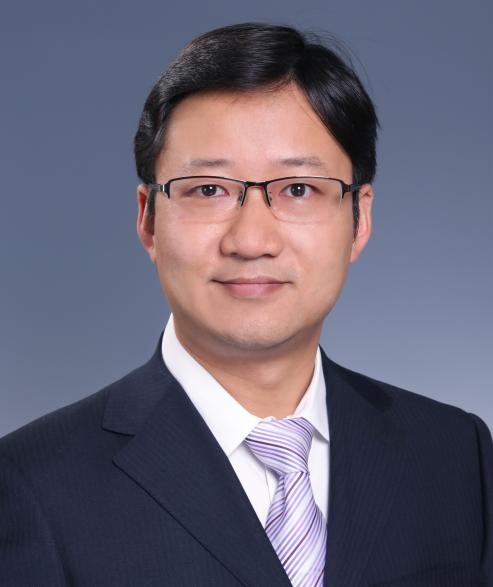
Professor
Department of Automation,
Tsinghua University
Biosketch
Dr. Xiaowo Wang is an Professor of bioinformatics at the Department of Automation Tsinghua University. He received his Bachelor's degree of Engineering and Ph.D. in Bioinformatics from Tsinghua University. He joined the faculty of Tsinghua University since 2008. He was a visiting student in Cold Spring Harbor laboratory in 2007-2008, and a Tang Distinguished Scholar in Synthetic Biology Institute of UC Berkeley in 2012-2013. His lab aims to bring AI and biology approaches together to understand gene regulation networks quantitatively and systematically, and guide the design of synthetic biological systems.
Keynote Title & Abstract
Title: De Novo Design of Synthetic Gene Regulatory Elements Using Generative AI
Designing gene regulatory elements with desirable properties is essential in synthetic biology.
While human experts excel at identifying strong explicit patterns in small samples, deep learning models are adept at detecting implicit weak patterns in large datasets.
We aim to harness the powerful inductive and learning capabilities of AI. On one hand, we develop interpretable models to extract complex structured sequence patterns learned by neural networks from vast genotype and phenotype data. On the other hand, we construct knowledge-guided, data-driven generative AI models to design synthetic gene regulatory sequences according to functional requirements. Using synthetic biology technologies, we test the AI-designed gene regulatory sequences, evaluate the model's design results, and enhance our understanding of gene regulatory principles through iterative cycles between physical and virtual worlds.
Our work provides new insights into de novo gene regulatory element design, demonstrating the potential of AI to produce optimized genetic elements.
Jing Tang
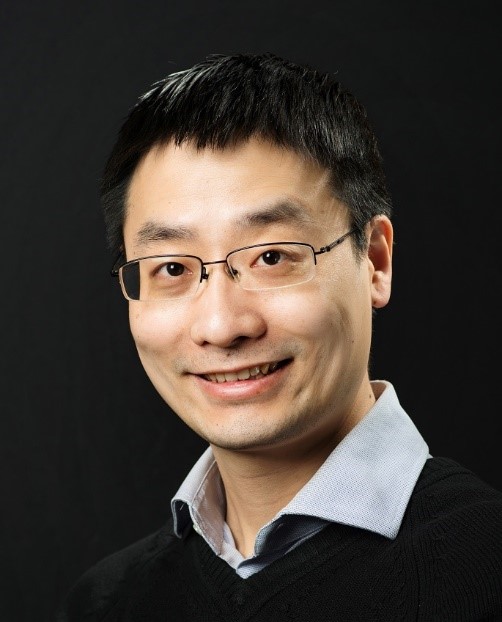
Associate Professor
University of Helsinki
Biosketch
Dr. Jing Tang is an associate professor of medical bioinformatics at the University of Helsinki. He received Ph.D. in statistics from the University of Helsinki. During the Ph.D. study, he developed Bayesian model-based clustering methods for identifying bacterial population structures, and further proposed a network model to estimate the inter-clustering genetic exchange. During his post-doc at the VTT Technical Research Center of Finland, he developed partial correlation networks to distinguish causality from associations when integrating multi-omics data. He is an awardee of the prestigious ERC Starting Grant 2016, focusing on informatics approaches to predict, understand, and test personalized drug combinations in cancer. All the methods are offered with open-source tools that life science and drug discovery researchers frequently use. Recently his team has won three international competitions (DREAM Challenges) for the prediction of drug targets, drug sensitivity, and immunotherapies.
Keynote Title & Abstract
Title: Network pharmacology approaches to predict, test and understand drug combinations in cancer
Precision medicine still faces a significant challenge in leveraging patient data to make the optimal treatment decisions, especially in cancer treatment. Cancer drug discovery has clearly shifted towards targeted therapies and immunotherapies. However, their success in clinical trials has been limited, largely because we don’t fully understand why patients respond differently to the same therapy. More perplexingly, durable drug responses are rare. Patients urgently need a combination of drugs that can more effectively inhibit the cancer cells and block drug resistance.
We aim to accelerate the discovery of drug combination therapies using network-based computational approaches to (i) predict individualized drug combinations and pinpoint their therapeutic target interactions (ii) to evaluate the degree of synergy in the drug combination screens and (iii) to understand the mechanisms of drug combinations. First, I will introduce computational models to leverage functional genetic screen and molecular features in identifying more reliable drug targets for cancer cells. Secondly, I will describe mathematical models including the CSS and ZIP methods, together with a harmonized drug sensitivity data portal called DrugComb. Lastly, I will present case studies in breast cancer, ovarian cancer, and hematological cancer where our methods have identified promising combination therapies for further exploration.







